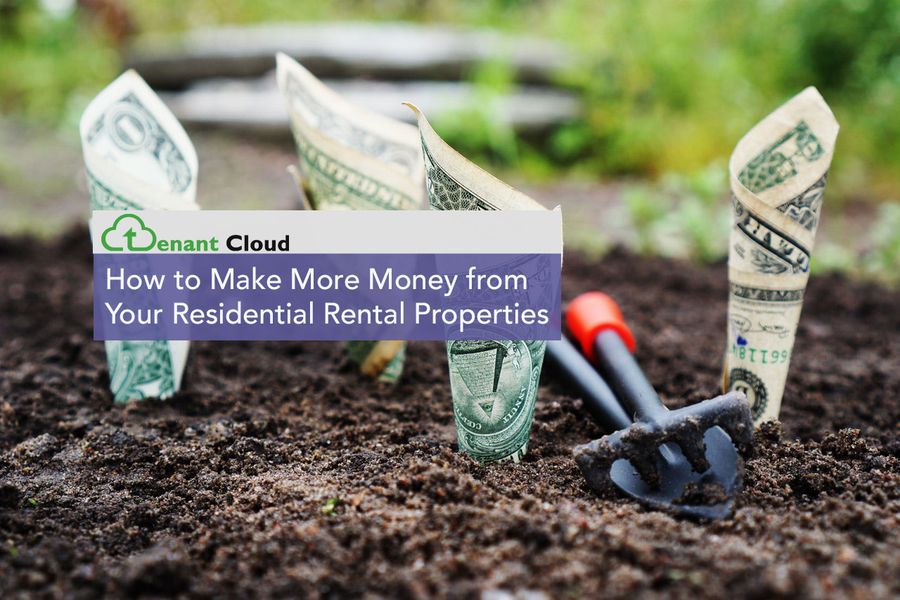With few exceptions, landlords want to maximize profits from their rental properties, but what are the best ways to do this? We spoke with several experienced landlords from across the country about their top pieces of advice for increasing property income, and it’s intriguing to see what these experts focus on and how their pieces of advice overlap.

Here’s what they had to say:
There are two different angles you could take with this: one is increasing monthly rental income, and for that, I’d say look for shorter-term leases, three-to-six month leases, where you can charge higher rent. Also, aim to rent to people with pets. Most landlords don’t want to rent to pet owners, so these prospective tenants have fewer rental options and are typically willing to pay higher prices.
From the second angle, the angle of having a good bottom dollar, my advice may seem boring, but here it is: improve your tenant-screening process and nail down your apartment turnover process. If you have high-quality tenants, you’ll have a great bottom dollar. They stay in the unit longer and take better care of property, which saves you time and money. They tend to have better jobs and are more qualified tenants—and they care about their credit and don’t want anything to affect it. With good tenants, you won’t have eviction and court costs. Also, the faster you can turnover and repair an apartment, the less time you have a vacant unit and the more money you’ll make, so nail down this process as well. And DIY fixes will save you money.
-Scot Howat, Illinois, Landlord, Real Estate Entrepreneur, House Flipper, and Realtor with Evergreen Real Estate
Properly screen your tenants to avoid the likelihood of possible eviction. Evictions can be very stressful, costly, and require a talented lawyer. I spend a lot of time calling references, checking social media accounts, asking open-ended questions with current and previous employers and landlords/property management companies. Meeting the possible tenants in person and paying attention to the questions they ask is very helpful. Don't charge an initial application fee—this way everyone can apply for free, but you can locate the top applicant for your place and move forward with that tenant with the credit, eviction, background check. Bonus: if that one applicant doesn't get approved, you have others waiting!
Sara Cramer, California, Landlord and Realtor
Take note of the sizzle features your properties have that can command a premium, like a pool. You can charge higher rents when you have amenities or other features renters want, but keep in mind that while some sizzle features could be a positive amenity in one part of the country, they could be a negative one in another. You’ll need to identify what those desired features are and market them.
Also, consider short-term rentals, like Airbnb. One way to tell if this would be a good choice for you is to use data resources, like airDNA.co, to project if short-term rentals are a good choice for you. This site looks at rentals near you and allows you to analyze potential revenue. Be sure to do your due diligence before you head in this direction. If your property belongs to an HOA, find out if short-term rentals are prohibited. If you do decide to go this route, look at the visitor’s bureau to identify what events could attract out-of-town visitors. Maybe you live near a coast or other attractions. Emphasize these to your short-term rental market.
Another way to make more money is to reduce your turnover costs by offering longer-term leases, like 24-month leases. You’ll have less to pay for in turnover costs if tenants stay longer. Also, conduct high-quality checks on potential tenants. Learn what they do for work and run background checks to discover their previous history. Note patterns, like how frequently they move. If they move frequently, then they’ll likely keep up that pattern with you.
Colin Williams, Texas, Landlord, Real Estate Investor, and Residential Redeveloper
Prioritize building great working relationships with your tenants. Building a good working relationship with tenants could save you enormously when your tenant brings a water leak to your attention before the damage occurs, or suggests you repair a broken window that could cause vandalism to occur. Whatever way you can maintain good working relationships—keeping rent increases reasonable, rewarding tenants when they help you out, or acknowledging them for their helpful attitude—the payoff can be significant!
Peter Shapiro, Massachusetts, Landlord Coach, Trainer, and Author of “The Good Landlord: A Guide to Making a Profit While Making a Difference”
These hard-won nuggets of knowledge from experienced landlords are worth thinking through as you aim to increase your rental profits. Here’s a bulleted reference list summing up their suggestions:
- Vet, vet, vet! Evaluate prospective tenants robustly
- For higher monthly profits, charge premium rates for short-term leases and to pet owners
- For higher bottomline, offer long-term leases to reduce turnover, speed up your turnover process, and turnover units yourself when you can
- Strategically market property features, amenities, and local attractions to appeal to prospective renters
- Build great working relationships with your tenants
If you have any pieces of advice on this topic, leave a comment below. We’d love to hear your thoughts!
Self-Management vs. Property Management Systems: What's Better?
How To Increase Your Real Estate Property Value: 3 Easy Methods You Should Know
First Time Landlord Tips And Tricks: How To Start A Rental Property Business







